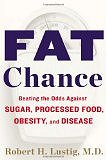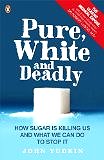

 Wikipedia Sitemap |
|
|  Useful Links 1 Useful Links 2 |

New Year resolutions bring reinforcement of old myths. Eating a lot of sugar does lead to obesity, but diabetes is not caused by eating sugar, it is more related to poor eating habits involving processed chemicals known as junk food.
Our body is a wonderful machine that provides energy when needed and stores the rest. All eaten substances are broken into molecules for absorption and recycled into the energy type needed. Sugars, starch, carbohydrates and fats are made in the same factory for different purposes.
Carbohydrates are molecules of carbon, hydrogen and oxygen arranged in rings. The most basic are called simple sugars or monosaccharides of which glucose is the main energy unit used by our cells. It can be stored in a stable form as a starch and as part of fats. Table cane sugar is sucrose. It has two rings which the body splits into glucose for energy. Lactose is a two-ring milk sugar. Some people lack the enzyme to split it for absorption. We call them lactose intolerant, and the unsplit sugar remains in the gut, gets digested by bacteria and produces methane gas and cramping.
Sugars have a tendency to draw water towards them so that trying to store large amounts of glucose in a cell would cause it to burst. Plants convert glucose into starch, and store it usually in their roots and seeds, e.g. rice and potatoes. When we eat these starches, our digestive tract converts it back to glucose. It is better to eat foods that digest and convert slowly to ensure a steady supply.
If too much glucose is present in the blood, our bodies make their own type of starch called glycogen, which gets stored in the liver and muscle for later use. We generally carry a two day supply. This glycogen gets used up during starvation, and we "hit the wall". A feeling of tiredness and true lack of energy. The body shifts into looking for other fuel sources to burn, and these come from splitting up various fats to liberate fatty acids as energy. Other less desirable by products are produced in this process and it can be harmful but is meant to allow survival during extreme conditions.
The bottom line is that eating naturally grown foods like vegetables and fruits in balanced amounts is a guiding principle of health. It is when these natural substances get altered that trouble begins.
High Fructose Corn Syrup (HFCS) has largely replaced cane sugar in most products. It is a complex molecule derived in a secret process from the corn stalk, and is cheap to produce. We consume immense quantities and our body must process this molecule, producing irritating substances which lead to disease. Try to avoid HFCS in the New Year. Skip all pop and synthetic fruit drinks.
My take on artificial sweeteners like Aspartame and a dozen more is slightly more cynical. Feeding the brain molecules that sensitize it to needing more is a wrong approach. Combining it with caffeine is worse still. I have seen very little evidence to show that these substances reduce obesity or improve health, and the track record of their metabolites is hugely suspect. Feed your body sugar very slowly, by keeping in mind that extra sugar gets converted to fat for storage!
Related resources:
 Fat Chance: Beating the Odds Against Sugar, Processed Food, Obesity, and Disease by Dr. Robert H. Lustig |
 Pure White & Deadly: How Sugar Is Killing Us and What We Can Do to Stop It by John Yudkin |
● Sugar: The Bitter Truth. YouTube video, 1:29:28. Uploaded on Jul 30, 2009. Robert H. Lustig, MD, UCSF Professor of Pediatrics in the Division of Endocrinology, explores the damage caused by sugary foods. He argues that fructose (too much) and fiber (not enough) appear to be cornerstones of the obesity epidemic through their effects on insulin. "Fructose is a poison by itself ... Fructose is not glucose." Dr. Lustig advocates that we go on a Paleolithic Diet.
● Paleolithic diet from Wikipedia, the free encyclopedia.
● Paleo in a Nutshell Part 1: Food. YouTube video, 5:36 min.
● Paleo in a Nutshell Part 2: Exercise. YouTube video, 5:35 min.
● Paleo in a Nutshell Part 3: Sunshine. YouTube video, 6:08 min.
● The Paleo (a.k.a. Caveman) Diet as seen on ABC's Nightline. YouTube video, 5:37 min.
● Loren Cordain - Origins and Evolution of the Western Diet: Health Implications for the 21st Century. YouTube video, 1:12:45. "Dr. Cordain is a Professor in the Department of Health and Exercise Science at Colorado State University in Fort Collins, Colorado. His research emphasis over the past 15 years has focused upon the evolutionary and anthropological basis for diet, health and well being in modern humans."
● Sugars and Carbohydrates from American Heart Association.
● Carbohydrate from Wikipedia.
● Sugar from Carbohydrates from NetDoctor.co.uk.
● Sugars from NHS.uk. Why cut down on sugars? Tips to cut down on sugars
● High fructose corn syrup from Wikipedia.
● High-fructose corn syrup: Any health concerns? by Jennifer K. Nelson, R.D., L.D. Nutritionist from Mayo Clinic.
What is high-fructose corn syrup? What are the health concerns?
● A Sweet Problem by Hilary Parker, Princeton University. Princeton researchers find that high-fructose corn syrup prompts considerably more weight gain.
● The Not-So-Sweet Truth About High Fructose Corn Syrup by Mark Hyman, MD.
Practicing physician. From HuffingtonPost.
● This Is Your Brain On Sugar: Study Shows High-Fructose Diet Sabotages Learning, Memory from Science Daily.